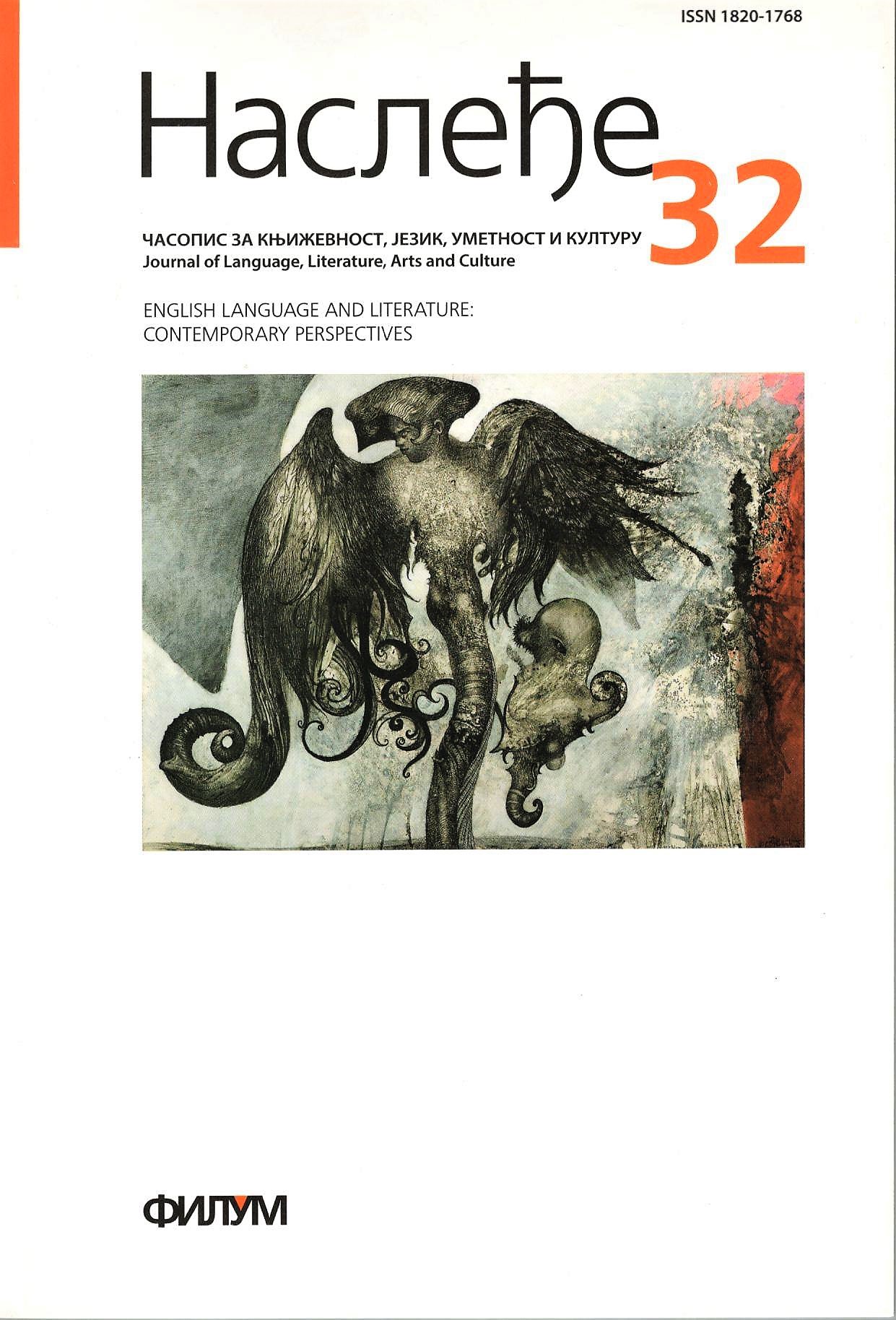U-PRAGMATIKA I E-PRAGMATIKA: ARGUMENTI ZA I-PRAGMATIKU
Кључне речи:
socijalni, kognitivni, pragmatika, relevancija, univerzalna gramatika, E-jezik, I-jezik, kompetencijaСажетак
U ovom članku učinjen je pokušaj da se obrazloži jedna nova koncepcija odnosa između socijalnog (deskriptivnog) i kognitivnog (psihološkog) pristupa izučavanju komunikacije razvijenog u okviru teorije relevancije. Izloženi argumenti se zasnivaju na analogiji između pojmova Univerzalne gramatike, E-jezika i I-jezika, razvijenih u okviru generativne lingvistike, i modela kognitivnih mehanizama i psiholoških procesa komunikacije, razvijenih u okviru teorije relevancije. Argumenti navode na zaključak da pragmatička kompetencija, koja se na nivou individualne psihologije može nazvati „I-pragmatika” (po analogiji sa pojmom „I-jezik”), predstavlja prirodnu dodirnu tačku univerzalnih kognitivnih mehanizama komunkacije i mehanizama specifičnih za komunikacijske sisteme pojedinih kultura.
Референце
Allott 2002: N. Allott, Relevance and rationality, UCL Working Papers in Linguistics, 14, 69–82.
Bach, Harnish 1982: K. Bach, R. M. Harnish, Linguistic Communication and Speech Acts, Cambridge, MA: MIT Press.
Bhatti 2014: J. Bhatti, The Communication of Emotions in England and Poland: Compliments and Refusals, University of Bedfordshire PhD thesis.
Blakemore 1992: D. Blakemore, Understanding Utterances: An introduction to Pragmatics, Oxford, UK: Blackwell.
Brown 1995: G. Brown, Speakers, Listeners, and Communication: Explorations in Discourse Analysis, Cambridge: Cambridge University Press.
Carston 2002: R. Carston, Thoughts and Utterances: The Pragmatics of Explicit Communication, Oxford: Blackwell.
Chase, Simon 1973: W. G. Chase, H. A. Simon, The mind’s eye in chess, in: W. G. Chase (ed), Visual Information Processing, New York: Academic Press, 215–281.
Chomsky 1986: N. Chomsky, Knowledge of Language: Its Nature, Origin and Use, New York: Praeger.
Chomsky 1965: N. Chomsky, Aspects of the Theory of Syntax, Cambridge, MA: MIT Press.
Escandell-Vidal 2004: V. Escandell-Vidal, Norms and Principles: Putting Social and Cognitive Pragmatics Together, in: R. Márquez-Reiter, M. E. Placencia (eds), Current Trends in the Pragmatics of Spanish, Amsterdam: John Benjamins, 347–371.
Firth 1996: A. Firth, The discursive accomplishment of normality: On “lingua franca” English and conversation analysis, Journal of Pragmatics, 26, 237–259.
Fodor 1983: J. A. Fodor, The Modularity of Mind, Cambridge, MA: MIT Press.
Gigerenzer et al 2002: G. Gigerenzer, J. Czerlinsky, L. Martignon, How good are fast and frugal heuristics?, in: R. Elio (ed), Common Sense, Reasoning and Rationality, New York: Oxford University Press, 148–173.
Goffman 1967: E. Goffman, Interaction Ritual, London: Allen Lane, The Penguin Press.
Jakobson 1960: R. Jakobson, Concluding statement: linguistics and poetics, in: T. A. Sebeok (ed), Style in Language, Cambridge, MA: MIT Press.
Lyons 1968: J. Lyons, Introduction to Theoretical Linguistics, Cambridge: Cambridge University Press.
Pomerantz 1978: A. Pomerantz, Compliment Responses: Notes on the Cooperation of Multiple Constraints, in: J. Schenkein (ed), Studies in the Organization of Conversational Interaction, New York, Academic Press, 79–112.
Sampson 1980: G. Sampson, Schools of Linguistics: Competition and Evolution, London: Hutchinson.
Schaden 2010: G. Schaden, Vocatives: A note on addressee-management, University of Pennsylvania Working Papers in Linguistics, 16, 176–185.
Schank 1980: R. C. Schank, How much intelligence is there in artificial intelligence?, Intelligence, 4, 1–14.
Schiffrin 1994: D. Schiffrin, Approaches to Discourse, Oxford: Blackwell.
Searle 1996: J. R. Searle, The Construction of Social Reality, London: Penguin Books.
Sperber (ed) 2000: D. Sperber, Metarepresentations: A Multidisciplinary Perspective, Oxford: Oxford University Press.
Sperber, Wilson 2002: D. Sperber, D. Wilson, Pragmatics, Modularity and Mindreading, Mind and Language, 17 (1), 3–33.
Sperber, Wilson 1986/95: D. Sperber, D. Wilson, Relevance: Communication and Cognition, Oxford: Blackwell.
Sternberg 1990: R. J. Sternberg, Metaphors of Mind: Conceptions of the Nature of Intelligence, Cambridge: Cambridge University Press.
Wilson 2000: D. Wilson, Metarepresentation in linguistic communication, in: D. Sperber (ed), Metarepresentations: A Multidisciplinary Perspective, Oxford: Oxford University Press, 411–448.
Žegarac 2004: V. Žegarac, Relevance theory and the in second language acquisition, Second Language Research, 20 (3), 193–211.
Žegarac, Clark 1999: V. Žegarac, B. Clark, Phatic interpretations and phatic communication, Journal of Linguistics, 35, 321–46.






